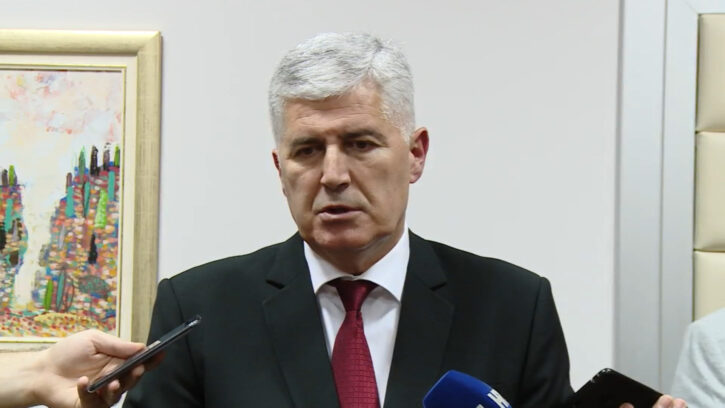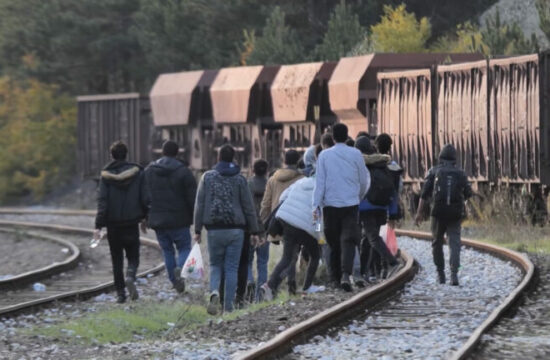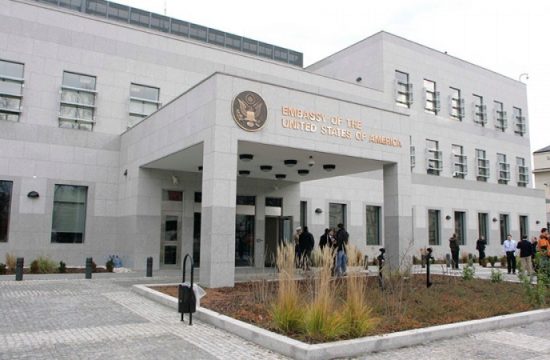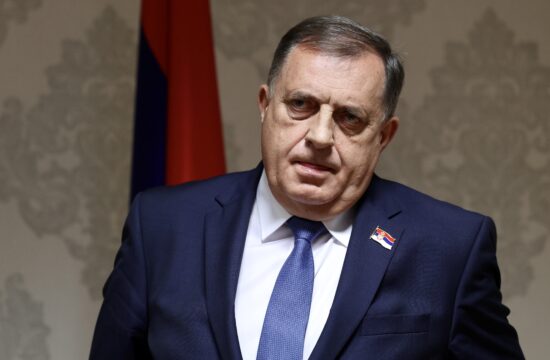
It was my choice where I should go during the inaugural session of Bosnia's tripartite Presidency, Croat Democratic Union leader Dragan Covic said, Tuesday, commenting his absence during last week's session when the newly elected members were sworn in.
“I have a clear stand when it comes to the legitimacy of elected representatives and that's how I'll act in the future,” Covic added.
His comments refer to the newly elected Croat Presidency member Zeljko Komsic from the left-wing Democratic Front (DF) who beat him to the position during the October general election in Bosnia and Herzegovina.
Dragan Covic, his nationalist HDZ BiH and all parties gathered around the Croat National Assembly (HNS), an organisation made up of Bosnian Croat parties, all dispute Komsic's election, saying he was elected thanks to Bosniak votes and as such, he is not a legitimate Croat Presidency member.
Bosnia's Constitution stipulates that the Presidency consists of three members, each coming from one of three constituent peoples, Bosniaks, Croats and Serbs. The Constitution never mentions that each member must be elected by members of their people.
Covic also commented on the Central Election Commission's (CIK) session at which they will decide on the distribution of mandates in the Federation of Bosnia and Herzegovina (FBiH) entity's House of Peoples saying it is a “crutial” session.
“We're not naïve. If someone wanted to elect the Croat Presidency member, I'm sure they'll want to elect other representatives. The Constitutional Court's decision can only be implemented by the lawmaker,” he noted.
In December 2016, the Constitutional Court of Bosnia and Herzegovina ruled partially in favour of a complaint lodged by former HDZ BiH politician Bozo Ljubic. At issue was the state Election Law provision dictating that cantons delegate at least one representative from each of the country’s three main ethnic groups to the FBiH entity House of Peoples. Ljubic argued that the Croat influence in cantons with Bosniak majority was unfairly diminished in the selection of delegates.
The Court partially agreed with Ljubic. The ruling struck down a portion of Bosnia’s Election Law, stating that it must be amended within six months, without specifying changes. This change never took place because lawmakers could not reach a compromise on the issue.
The current situation is such that the FBiH Constitution stipulates that the CIK BiH must distribute mandates in the FBiH House of Peoples by using the census of population in Bosnia and Herzegovina. The latest census which took place in 2013 presented a brand new challenge for the CIK BiH.
The Dayton Peace Agreement that ended the 1992-95 war prescribed in its Annexe VII that everybody who was forced to leave their home during the war has the right return. The idea was to erase the results of ethnic cleansing, which in practice turned the once mixed Yugoslav republic into clusters of ethnic-based enclaves.
The Agreement also prescribed that until the expelled return home, the division of power in the communities will be distributed according to the 1991 census, the one before the ethnic cleansing.
However, nationalists have obstructed the return of refugees ever since the end of the conflict and Annex VII has never been fully implemented. Meanwhile, the 2013 census has exposed the full extent of the ethnic cleansing effects.




